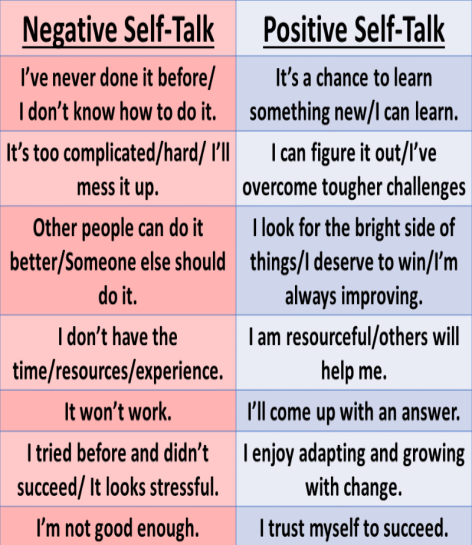Understanding Self-Love
Self-love is a powerful concept that plays a crucial role in our mental health and overall well-being. It involves embracing our unique qualities, passions, and accepting ourselves for who we are. Psychology Today defines self-love as “a state of appreciation for oneself that grows from actions that support our physical, psychological, and spiritual growth.”
One might wonder how self-love differs from self-esteem. While self-esteem refers to our overall sense of worth and value, self-love goes beyond that. It encompasses not only valuing ourselves but also treating ourselves with kindness, respect, and compassion.
The importance of self-love cannot be overstated. When we practice self-love, we are better equipped to set boundaries, prioritize self-care, and maintain healthy relationships. Dr.

Umar Johnson, a renowned psychologist and advocate for self-love, emphasizes its significance in avoiding blaming others for our shortcomings and taking responsibility for our actions.
However, embracing self-love is not always easy. Societal stereotypes and the culture of separation often make it challenging for individuals to appreciate their unique qualities. To overcome these obstacles, it is essential to cultivate self-love through daily practices and habits.
One such practice is the celebration of Self-Love Day, developed by Danni, a mental health advocate. This day promotes self-care, self-acceptance, and positive mental health practices. Additionally, the “I’m Proud of You Sis” podcast showcases successful women, promoting inclusivity and encouraging listeners to challenge preconceived notions and embrace their potential.
In conclusion, self-love is a vital aspect of personal growth and mental health. It helps individuals set boundaries and prioritize self-care and self-compassion. Achieving balance in self-love is an ongoing journey that requires conscious effort and patience. By embracing self-love, we can live more fulfilling and meaningful lives, forming meaningful connections with others and making a positive impact on our communities.
Practices to Cultivate Self-Love
Cultivating self-love is essential for overall well-being and happiness. By practicing daily habits and exercises, you can enhance your self-love and live a more fulfilling life. Here are some practices to help you on your journey.
Embrace Gratitude
Gratitude plays a significant role in improving mental health and self-esteem. By expressing gratitude daily, you can reduce symptoms of depression and anxiety, and increase satisfaction with daily life. A simple way to practice gratitude is by writing down three things you’re thankful for each day.
Mindfulness Meditation
Mindfulness meditation promotes self-awareness and acceptance, leading to increased self-love. Spend a few minutes each day focusing on your breath and being present in the moment. This practice can help you become more in tune with your thoughts and feelings, allowing you to embrace self-love.
Engage in Physical Activity
Regular physical activity releases endorphins, which improve mood and promote a positive body image. Whether it’s a brisk walk or an intense workout, make time for exercise to enhance your self-love.

Prioritize Self-Care
Self-care activities like taking a relaxing bath, practicing yoga, or indulging in a favorite hobby can help you feel more centered and positive about yourself. Prioritize these activities to cultivate self-love and overall well-being.
Practice Positive Self-Talk
Be kind and compassionate towards yourself by engaging in quality self-talk. Replace negative thoughts with positive affirmations to enhance self-love and overall well-being.
Build a Strong Support Network
Reaching out to loved ones, attending social events, and engaging in group activities can improve self-esteem and feelings of belonging. A strong social support network is essential for cultivating self-love.
Disconnect from Technology
Taking breaks from technology and social media can help you focus on yourself and reduce comparison. Use this time to engage in self-reflection and practice self-love.
By incorporating these daily practices into your routine, you can cultivate self-love and improve your overall well-being. Remember, self-love is a journey, and it’s essential to be patient and kind to yourself along the way.
Overcoming Negative Self-Talk
Overcoming negative self-talk is essential for cultivating self-love. It’s crucial to challenge and replace negative thoughts with positive ones. This process can significantly improve mental health and overall well-being. Let’s explore some effective strategies to achieve this transformation.
Challenge Your Thoughts
First, remind yourself that thoughts are not facts. Actively seek evidence to counter negative assumptions. This practice helps in developing a more balanced perspective. For example, if you think you’re not good enough, list your accomplishments and strengths to prove otherwise.
Practice Self-Compassion
Treat yourself with kindness and understanding. Embrace your imperfections and recognize that everyone has flaws. Practicing self-compassion can help you develop a more positive self-image.
Relax and Enjoy
Incorporate relaxation practices, such as meditation or yoga, to reduce stress and quiet the mind. Engage in activities that bring joy and help you focus on the present moment. This approach can help you let go of negative thoughts.

Understand Your Triggers
Identify patterns of overthinking through self-reflection and journaling. Understanding your triggers can help you develop strategies to manage negative thoughts. For example, if social media causes self-doubt, limit your screen time.
Seek Support
Turn to trusted friends or family members for an objective perspective. They can help you see situations in a positive light and avoid jumping to negative conclusions. Additionally, consider seeking professional help, such as online therapy, if needed.
Embrace Positivity
Daily affirmations and gratitude journaling can help shift your mindset and improve self-esteem. Focus on internal qualities and personal growth, rather than external validation.
By consistently implementing these strategies, you can overcome negative self-talk and cultivate a strong sense of self-love. Remember, consistency is key, and the benefits of positive self-talk are significant. Embrace this journey to a happier and healthier you.
Setting Boundaries for Self-Love
Self-love is a crucial aspect of personal growth and well-being. One essential practice that contributes to self-love is setting boundaries. Establishing personal limits and expectations allows individuals to prioritize their needs, manage their time, and regulate their behavior. This leads to a sense of accomplishment and greater happiness in life.
Why Boundaries Matter
Boundaries play a vital role in promoting self-respect and building confidence. By defining and protecting our values, needs, and limits, we create a safe and empowering environment for ourselves. This fosters healthy communication and relationships, ultimately contributing to personal growth and fulfillment.
Moreover, setting boundaries can positively impact mental health by reducing stress and anxiety. It allows individuals to prioritize their time and energy towards activities they enjoy, enhancing creativity and overall well-being.
Setting Boundaries in Relationships
In relationships, clear communication of boundaries sets the tone for mutual respect and trust. By valuing ourselves and establishing healthy limits, we can avoid being taken advantage of and build stronger connections with others.

One example of a company that promotes healthy boundaries in relationships is The Gottman Institute. They offer resources and tools to help individuals and couples develop effective communication skills and maintain healthy boundaries.
Embracing Self-Love Through Boundaries
Learning to set and maintain boundaries requires self-awareness, assertiveness, and self-compassion. It may involve seeking support from trusted individuals or professionals, such as life coaches or therapists.
By setting boundaries, we demonstrate self-love and self-respect, allowing ourselves to lead a happy and fulfilling life. This practice not only benefits our mental health and relationships but also contributes to our personal growth and development.
In summary, setting boundaries is a vital practice for cultivating self-love. By establishing personal limits and expectations, we can prioritize our needs, protect our well-being, and build healthier relationships. Embrace the power of boundaries and take a step towards greater self-love and personal growth.
Celebrating Your Achievements
Celebrating personal achievements is an essential aspect of self-love. It allows you to acknowledge your hard work, growth, and progress, boosting your self-esteem and motivation. In a world where unrealistic societal expectations and harmful stereotypes, such as the “Strong Black Woman” trope, often lead to neglecting self-reflection and celebration, it’s crucial to prioritize balance, fulfillment, and joy.
Simple Ways to Celebrate
You don’t need extravagant or expensive celebrations to honor your achievements. Small acts of self-appreciation can make a significant impact on your well-being. Treat yourself to your favorite meal, indulge in a relaxing activity, or simply take a moment to reflect on your accomplishments.
Recognizing and celebrating your achievements can also help you overcome imposter syndrome and self-doubt. By acknowledging your successes, you set a positive tone for the day and identify areas for improvement. This practice is essential for anyone who wants to cultivate self-love, not just employees.
Building a Supportive Community
Creating a community focused on celebrating personal achievements provides an opportunity to share experiences, offer mutual support, and prioritize balance, fulfillment, and joy.

For example, Herff Jones successfully closed out the spring 2023 commencement season with a 99.8% on-time delivery rate of regalia orders, emphasizing the importance of celebrating graduates’ achievements.
Self-Love and Self-Acceptance
Self-love involves accepting yourself with flaws and imperfections, making time and space to prioritize your needs, and setting healthy boundaries for self-care. Self-acceptance entails embracing your whole reality while remaining discontented with faults and imperfections to uphold your capacity for growth and moral development.
Practicing self-love and self-acceptance can help you deal with shame-based beliefs, distorted body image, and other painful feelings and challenges. Studies have shown that self-compassion, a key aspect of self-love, can help individuals cope with stress and anxiety and improve mental health outcomes.
Incorporating the celebration of personal achievements into your self-love practice can lead to a more balanced, fulfilled, and joyful life. Embrace your accomplishments, no matter how small, and watch your self-love flourish.
